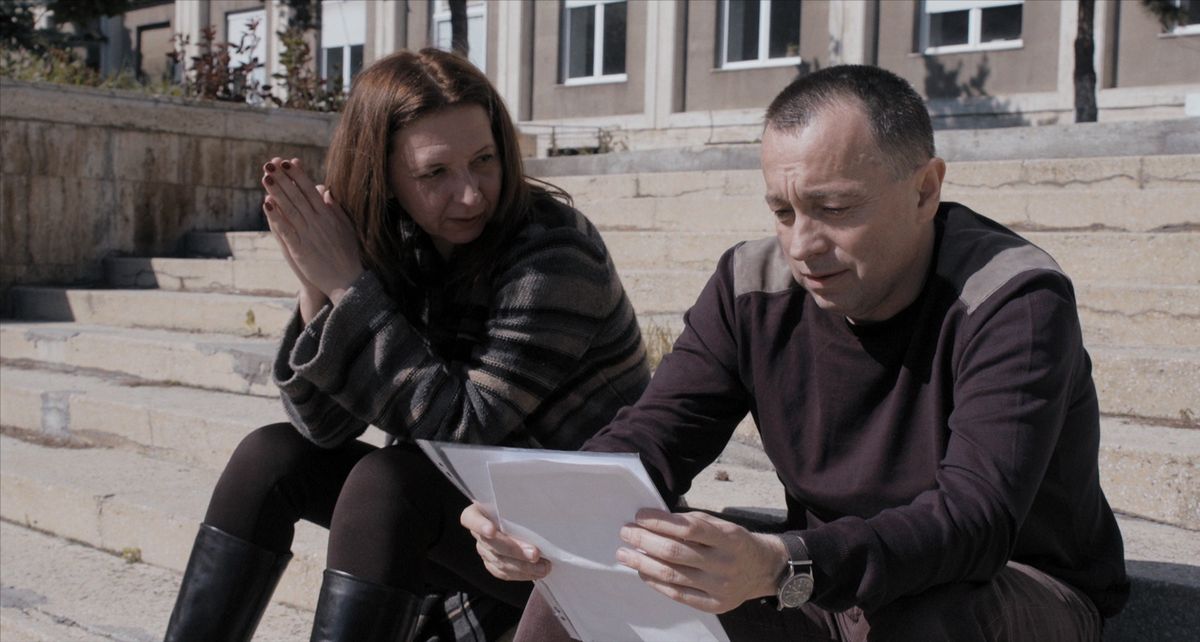Review: ‘Collective’ is an eerily prescient investigation of political corruption surrounding health care crisis

There’s a quiet, breathtaking power to Alexander Nanau’s documentary “Collective,” Romania’s Oscar entry this year. A propulsive urgency propels the film along derived not from manipulative storytelling techniques, but simply facts, information carefully observed, imparted plainly and with such a lack of melodrama, you could miss something crucial if you aren’t paying attention to every word.
Because what’s at stake in “Collective” are facts themselves in the wake of a deadly 2015 nightclub fire in Bucharest, Romania, a crisis that revealed entrenched corruption at every level of the health care system.
With an incredible sense of restraint, Nanau carefully lays out the details of this tale. It will soon spin into a saga of corporate malfeasance, government corruption, shady Mafia figures and people who try to do the right thing, which means slamming into a wall of red tape, political infighting and a deeply rooted system of bad actors.
But first, just the facts. On Oct. 30, 2015, a fire broke out during a rock show at the club Colectiv (Nanau includes footage from inside the club that night, which is terrifying and surreal). Without adequate fire exits, 27 people died in the blaze and 180 were injured. During the four months after the fire, 37 more burn victims died in Romanian hospitals. Post-tragedy, Romanians protested to hold the government accountable.
We pick up with a team of investigative reporters at the local sports daily, Sports Gazette, running down leads from sources, breaking news about a defective disinfectant that has allowed a lethal bacteria to run rampant through hospitals, killing burn victims who should have survived their injuries.
Editor-in-chief Catalin Tolontan is the driving force behind the investigation working with reporters Mirela Neag and Razvan Lutac to track down the CEO of Hexi Pharma, the disinfectant manufacturer, while gathering testimony from whistleblowers inside the hospitals, from doctors to accounting clerks.
Nanau depicts their process in detail as the story grows bigger and more unwieldy. For fans of films like “All the President’s Men,” “Collective” has all that great cinematic shoe-leather reporting: dramatic phone calls, last-minute layout changes, secret meetings with sources.
But Tolontan also is an important public figure in this movement, in TV appearances and in confronting officials and bureaucrats at news conferences, a determined reporter committed to truth and justice above all else.
It’s at one of these tense news conferences that we meet Vlad Voiculescu, an altruistic former patients’ rights advocate who takes over as Minister of Health. Voiculescu wants to do right by the victims of the Colectiv fire, but he soon finds himself mired in a web of bureaucracy unable to act on the unchecked abuse, bribery and embezzlement that rules the hospital system.
He wants to speak plainly, act swiftly, but he’s hamstrung by lackeys and those with political and financial vested interests. At one point, he helplessly queries a whistleblower doctor, “How the hell can this be solved?” He only becomes more desperate and disillusioned, ultimately telling one of the fire victims “sometimes the way a state functions can crush some people.” He could be talking about the victims, or himself.
“Collective” premiered at the Toronto International Film Festival last fall and screened at Sundance in January. Even this year, the film felt urgent, expressing an essential truth in the zeitgeist about political corruption and the role of the media in holding federal agencies and corporations accountable for endangering lives.
But in November, eight months into the COVID-19 pandemic ravaging the United States, there’s no denying that this film about the very real dangers of a government lying to its citizens about a health care crisis is almost unbelievably prescient and a grave cautionary tale. Gripping, incisive and shockingly powerful, “Collective” is easily the documentary of the year.